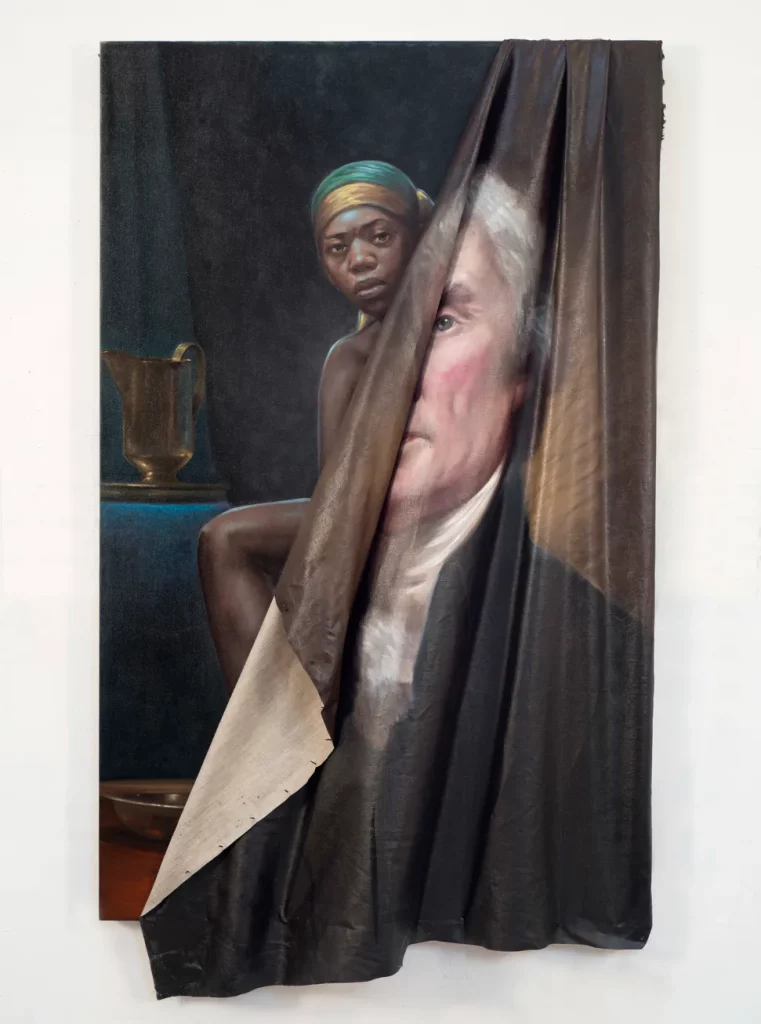According to a recent story by Kathleen Moore that appeared in the Albany Times-Union last week, the State Board of Regents had a chance to look at the new way the New York State Parks department will depict the American Revolution. The parks department’s new displays at several sites will “include powerful new videos detailing the lives of unheard people from that time.” One of the videos, which focuses on the struggles of an Oneida woman who fought the colonists in hopes of keeping her Nation’s land, ends with a black screen with the following words: “Since its founding, the United States has never upheld a treaty made with an Indigenous Nation.”
That’s a provocative claim. (And a complicated one, but that’s another story.) In all, there are forty videos, which have not yet been released to the public. The Board of Regents “immediately praised the new pieces, but worried that they would get another deluge of criticism similar to what happened when they approved diversity, equity, and inclusion policies.” They will need to be brave, and the Regents are readying themselves for combat. According to Chancellor Lester Young, Jr., “we are the body that is responsible for the education of all students and it’s important that we maintain the courage to do what’s right.”
“The new way of viewing the Revolution, as designed by the State Education Department’s Office of Cultural Education and the State Parks Department is called ‘The Unfinished Revolution.’” The Revolution was “incomplete” in that it “did not include women as voters, obviously enslavement was allowed for decades, so how do we grapple with that history?” That is what Devin Lander, the New York State Historian, said when he spoke with Moore. “The idea,” writes Moore, “is to see the revolution as the impetus for 250 years of striving to meet the ideals of the Declaration of Independence.”
Think about that.
250 years.
Two and a half centuries.
A quarter of a millennium.
It’s a long time. We have yet to fulfill the ideals of the Declaration after 250 years.

Maybe we are just not that into the so-called “ideals” of the Declaration. After all, Jefferson’s Declaration also expressed that nasty old hypocrite’s anger that the King was stirring up slave rebellion and bringing down upon the frontiers the “merciless Indian Savages.” Jefferson and the other “Founding Fathers” baked hatred of the other into the American Nation’s founding documents.
Framing the Revolution as “unfinished” will leave students ill-equipped to explain how it was that our supposedly ruthless imperial overlords in Britain managed to abolish slavery and recognize the right of women to vote well before the United States. It may seem to these students that the enemies of the principles laid out in the Declaration were quicker to realize them than our new “Empire for Liberty.” That might seem strange to them, a real head-scratcher.
The Board of Regents requires that students in New York learn about Cherokee Removal. The notion that New York could not have become the Empire State without a systematic program of Indigenous dispossession that, at times and places, violated federal law will never be mentioned. That New York continues to attempt to skim the cream from the barest hint of prosperity that comes to Indigenous nations in the state will never be mentioned. Continued treaty violations, today, are never addressed. Hochul and Cuomo, both Democrats, were as bad as the Republican George Pataki.
That white New Yorkers, today, are the beneficiaries of this process of dispossession is as heretical a doctrine to racist dingbats as it is to the Board of Regents, who hardly are as courageous as they would like to believe.
In the last election, nearly 75 million people voted for a dim-witted tyrant whose followers, at a convention broadcast on national TV, held pre-printed poster with the slogan, “Mass Deportation Now!” The Republican Presidential candidate and his running mate repeatedly state the known falsehood that immigrants are eating dogs and cats. It’s a vile, racist, lie. And they do not stop. Police violence against people of color is an American reality. I read the history of the past 250 years and it is overwhelming. The few occasions where this country’s leaders stood up for justice and equality came because people of color compelled them to do so. Maybe, just maybe, we do not value freedom and equality for all Americans. Many of us—too many—are comfortable with deeply entrenched inequality in American life. Too many people turn away from too much injustice. That, I am sorry to say, is a beat that runs through much of American history like a throbbing wail. So instead of saying outright, that we have failed to create a just and decent society, we claim that despite the passage of 250 years, we continue to strive to live up to the ideals of an enslaver who could turn a nice phrase. We have not failed because we have not had a chance to fail even though 250 years have passed and we have not succeeded. An unfinished revolution, you see, may not be much of a revolution at all.

